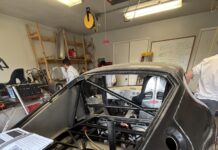Whenever I approach one of my parents’ friends, I brace myself for an interrogation. They always ask one of two things: where do you want to go to school, or what will your major be? To me, the latter of the two is more pressing because the first question is probably a bit easier for most seniors to answer at this point, and depending on your college, it may be very difficult to change majors. So, as one going through the process of refining thoughts and experimenting with experiences, I want to give a simple roadmap of how I have gone about the selection process so far in addition to a few things that I’ve figured out along the way.
1. Let your interests help narrow down possible majors.
My first impressions of which majors in which I would be interested narrowed down my choices. First, I thought about what I enjoy doing in my free time that might correspond to my future education. The obvious one for me was Robotics, which gave me a nice head start in engineering. I already knew that I enjoyed solving mechanical problems with design software and learning how to manufacture mechanisms properly. Another important interest of mine was space exploration. For a long time, unlocking parts of the unknown had been one of my central desires, and if I could help contribute to learning more about our celestial surroundings, that would be a huge bonus. I was left with a starting point of a couple interesting majors: mechanical and aerospace engineering.
2. See if you can envision yourself in occupations commonly associated with each degree.
I did some research on careers that commonly result from certain degrees to verify my intuition and find new opportunities. For example, I found that electrical engineers were usually quite versatile, applying their knowledge to electric vehicles, robots, industrial manufacturing, smartphones, and pretty much anything that needs electricity. I knew that I had to have some kind of physical design component to my learning though, so I pushed that degree to the back of my list. More recently, I discovered an interdisciplinary engineering degree that borrowed from mechanical, electrical, and computer science components, called mechatronics. It is just starting out at Texas A&M and isn’t offered everywhere, but it seems like an interesting option, especially if I want to end up making rovers to go to Mars and robotic space probes to explore the edges of our solar system. One of my concerns was that the degree might be too broad, but there’s always graduate school to focus on specific subjects.
Side Note: I specifically discuss A&M because I have only finished my Apply Texas app.
3. Base your major on your school if you have a list of schools to work with. If not, look for schools that specialize in an interesting major.
Another thing that I inspected was universities’ rankings in different degrees. Texas A&M stood out to me as an exceptional engineering school, so it was easier for me to rectify applying there based off of the culture and campus. I also saw some other higher-prestige schools at the top of the list in the aerospace and mechanical categories, which were incentivizing me to apply. I don’t suggest using this as the determining factor when choosing your major or college, but it is at the very least interesting to see. I have linked a few examples at the bottom of the article.
4. Sample some degree plans in each school to see what sounds interesting.
I did some digging on universities’ degree plans to find the types of classes that I would be required to take under a certain degree. Most colleges have several electives to choose from to fulfill the requirements of the broad degree plan. This method helped me when I discovered the amount of aerodynamics classes in the aerospace degree at Texas A&M. I was mainly attracted to the degree because of the space aspect, and now I am less inclined to take that major because of the types of classes in the degree plan.
5. Research school specialties.
I researched the specialties of universities within the mechanical and aerospace majors. For example, The University of Pennsylvania has a renowned quadcopter program. Additionally, Stanford is known for its entrepreneurs because of its locale, MIT is known for biomedical engineering, computer science, and robotics (Have you seen their really cool robots on YouTube?), and Texas, Florida and California schools have an affinity towards aerospace because of their proximity to NASA. These specialties mean there are better learning research opportunities with experienced professors.
Hopefully, my process will help you in some way, whether you are in the middle of the college frenzy or just beginning to be asked the daunting questions by prying/thoughtful adults who care about you.
In the end, remind yourself that your life does not depend on this decision. You’ll never really know for sure how good or bad of a fit your major is for you until you try it. Remember this quote from one of humanity’s smartest minds, Albert Einstein: “The value of an education in a liberal arts college is not the learning of many facts but the training of the mind to think something that cannot be learned from textbooks.”
Assorted College Resources:
http://colleges.usnews.rankingsandreviews.com/best-colleges/rankings/engineering-doctorate
http://engineering-schools.startclass.com/
http://colleges.usnews.rankingsandreviews.com/best-colleges/rankings/business
https://www.nerdwallet.com/blog/loans/student-loans/best-colleges-for-business-major-2015/
Albert Einstein Quote:
Brian, Denis. Einstein: A Life. New York, NY: J. Wiley, 1996. Print.






